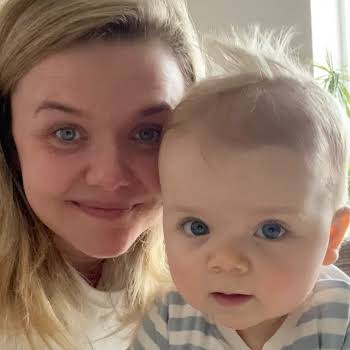
Gender disappointment: ‘I started avoiding friends who gave birth to baby girls because I was insanely jealous’
By Amanda Cassidy
09th Apr 2021
09th Apr 2021
So your heart was set on a boy (or a girl) but genetics decided otherwise. We speak to Irish mums about the secret sadness of gender disappointment.
“I remember a friend of mine talking about going to her daughter’s ballet concert and I thought ‘I’m never going to have that’. It was a pang I couldn’t control. I know that sounds awful, but it’s not that you are upset that you had another son, you are just overwhelmed with feelings of loss that you don’t have a daughter.”
Emily (32) had her third boy six months ago. She believes she has what’s known as gender disappointment — feelings of loss because you didn’t have a child of the gender you desired.
“I realised that I had linked everything about the pregnancy and birth to having a little girl — from dressing her in pink to planning her wedding. Then, when my son was born, that whole life I’d imagined just disappeared. I’m ashamed to say that I found it a massive letdown.”
Identity
For many of us, gender plays a huge role in our identity and, by extension, in the identities of our children. Whether we want to admit it or not, we have preconceptions over our interactions with our child that are shaded by their gender stereotypes.
We think our daughters are more likely to remember our birthday and have better interpersonal relationships while we imagine our sons will be strong, assertive men who will take care of us as we age. While gender disappointment is not an officially recognised syndrome, it can be a real issue for many parents who often seek support in unusual areas.
Emma (35) found herself turning to online communities to chat with other parents who felt the same way. She has two little girls and is currently expecting her third daughter. She says it would have been impossible to admit those feelings to anyone else in her life.
“It sounds so ungrateful to say, ‘I wanted a boy and not a girl,’ because you are aware that any child is a blessing. But rightly or wrongly, it was an emotion I couldn’t ignore.”
These online forums are seen as a ‘safe place’ for parents (usually women) to express their sadness about not giving birth to the gender they desired. In many cases, it is mums craving daughters after having multiple sons.
“I am avoiding friends who have baby girls because I have this awful feeling of jealousy that I cannot shake.
It is a place to say privately what you cannot say publicly for fear of being ‘shamed’. The result is a hotbed of unfiltered chat about the yearnings for a particular gender and it makes for quite emotional reading: “I love my kids”, writes one woman, “but I feel as if I am grieving for a child I will never know. I am avoiding friends who have baby girls because I have this awful feeling of jealousy that I cannot shake.”
Others write that their lives would be ‘complete’ if they’d had the son they’d always wanted.
I find these posts moving because I can understand that pang — I’ve seen friends break down because they realised their husband would never walk a daughter down an aisle. Psychologist and author Dan Greaves says that these feelings tend to disappear once the personality of the child begins to emerge.
“It is important to put things into perspective. Who says you won’t have a daughter that decides she never wants to marry? It is better to look at each child as an individual personality rather than a preconception based on their gender.”
Playing God
I can relate to that. I have the only daughter in the world who hates bows and refuses to wear pink. But it’s one thing to wish for a baby boy or girl, it is quite another thing to make it happen. Influencing the balance of your family is divisive. In Ireland, it is illegal to choose the sex of your baby. But new laws mean it could be possible to find out the sex of your baby as a side-effect of screening for certain genetic illnesses via IVF.
The idea of ‘playing God’ when it comes to sex selection might make some uncomfortable but more and more couples are choosing to head abroad – where the sex-selection business is booming.
The majority of Irish couples who decide to travel abroad to choose the sex of their baby go to clinics in Spain and North Cyprus and get IVF treatment with PGD. Preimplantation genetic diagnosis (PGD) is a procedure used prior to implantation to help identify genetic defects within embryos — it also tells the gender. It costs between €6,000-€10,000. This doesn’t include the cost of medication, pre-testing, scans, accommodation and airfare.
The obvious concern is that the population could become unbalanced. The other argument over gender screening is the fear that the manipulation of certain traits will result in ‘designer babies’. Once upon a time, everything about your baby was a surprise until the birth. The evolution of prenatal screening has been a game-changer. We now have access to information on genetics and DNA that are just a few years away from being diagnostic.
Technologies
What if you could know early in your pregnancy, whether your child would have your height or hair colour? What if you preferred a dark-haired child? What if you learnt that your daughter was more at risk of obesity? Would you obsess over her food choices — could you create issues from the knowledge you are given? In a world as unpredictable as ours, do you really want to play master over someone else’s life to this extent?
“In a world as unpredictable as ours, do you really want to play master over someone else’s life?
Ultimately, these technologies will raise questions far beyond gender. But there is no shame in craving something that you can’t (or don’t) have or being disappointed with the hand you are dealt. Sometimes there is merit in things being outside of your control. Some things are best left to the randomness of the universe… even if it does mean having a house that smells of socks forever.






















